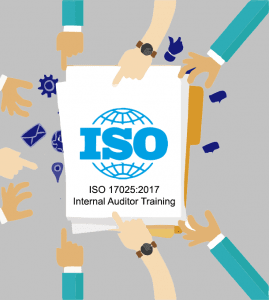
Navigating ISO 17025 Internal Auditor Training: A Comprehensive Guide
Introduction:
Welcome to our blog, where we delve into the world of ISO 17025 internal auditor training. In today’s fast-paced and dynamic business environment, quality management systems play a crucial role in ensuring the reliability of laboratory testing and calibration. ISO 17025, an international standard for laboratory competence, sets the foundation for quality assurance in testing laboratories.
One key aspect of maintaining ISO 17025 compliance is having well-trained internal auditors. In this blog, we will explore the significance of ISO 17025 internal auditor training, its components, and how it contributes to the overall success of a laboratory’s quality management system.
Understanding ISO 17025:
To begin, let’s establish a solid foundation by exploring the fundamentals of ISO 17025. We’ll delve into its key principles, requirements, and the importance of compliance for laboratories seeking to demonstrate competence in their testing and calibration activities.
Role of Internal Auditors:
Internal auditors act as the frontline defenders of quality within an organization. We’ll discuss the pivotal role they play in ensuring that the laboratory’s quality management system is not only established but also continually improved to meet the evolving demands of the industry.
Significance of ISO 17025 Internal Auditor Training:
This section will emphasize why investing in ISO 17025 internal auditor training is crucial. We’ll highlight the benefits of having skilled internal auditors, including improved process efficiency, better risk management, and increased customer satisfaction.
Components of ISO 17025 Internal Auditor Training:
a. Understanding the Standard:
We’ll explore how internal auditors need a deep understanding of ISO 17025 to effectively assess the laboratory’s compliance with its requirements.
b. Audit Planning and Preparation:
This section will cover the importance of meticulous planning and preparation before conducting internal audits, including defining audit objectives and scope.
c. Conducting the Audit:
The actual audit process involves interviewing personnel, reviewing documents, and assessing procedures. We’ll provide insights into best practices for conducting effective internal audits.
d. Reporting and Corrective Action:
A crucial part of the internal audit process is reporting findings and ensuring corrective actions are implemented. We’ll discuss how internal auditors contribute to the continuous improvement of the quality management system.
Challenges and Solutions:
Internal auditors may face various challenges during the audit process. We’ll identify common obstacles and provide solutions to overcome them, ensuring a smooth and successful audit.
Case Studies:
Real-world examples of successful ISO 17025 internal auditor training implementations will be shared, showcasing the positive impact on laboratory operations and compliance.
Conclusion:
In the concluding section, we’ll summarize the key takeaways and emphasize the long-term benefits of investing in ISO 17025 internal auditor training for laboratories committed to excellence in testing and calibration.
Whether you’re a laboratory manager, quality assurance professional, or someone interested in understanding the intricacies of ISO 17025 internal auditor training, this blog aims to be your comprehensive guide to navigating the world of quality management in testing laboratories. Stay tuned for valuable insights and actionable tips to enhance your internal audit processes and ensure ongoing compliance with ISO 17025.


